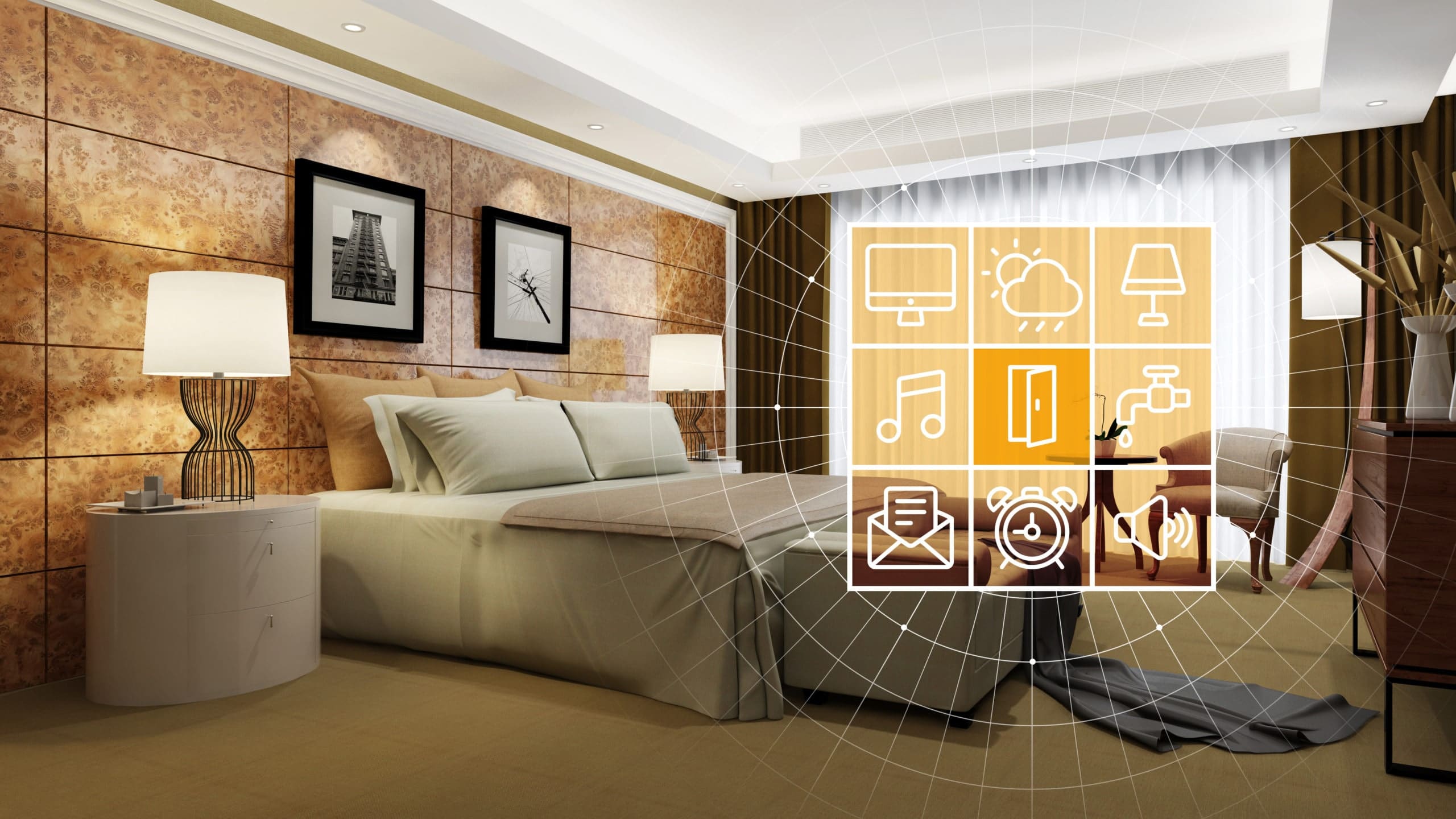
Modern hotels have to deliver a superior guest experience all the time if they’re to appeal to today’s sophisticated travelers. In terms of hotel security, guests now want security systems that keep them, their valuables, and their data safe. Ambitious hotel owners or managers – or the consultants advising them – can no longer can bet on traditional ‘cookie-cutter’ security and safety services in the hotel industry. Luckily, there’s a variety of hotel security tools that hand guests control of their personal safety and security. These include:
1. Digital keys
Everyone owns a smartphone these days and, as a result, the whole world has gone mobile. That includes hotel key cards. Digital keys are basically apps or software on a guest’s phone that they use to access their hotel rooms without a physical key card. The technology also sends notifications to guests and hotel management whenever someone tries/manages to sneak into the room or when the door is left open. The technology also monitors employee movement around the hotel, minimizing theft by rogue employees between housekeeping or maintenance shifts.
2. Facial recognition
Hotels also add face recognition key locks and LCD screens to complement digital keys in maximizing hotel security. When connected to a digital camera, these locks notify guests, through their smartphones, of someone standing outside their door. Guests are able to know the identity of unannounced visitors without having to leave their hotel beds. What’s more, with facial recognition, only authorized personnel can access a hotel room and other sensitive areas within the hotel.
3. Guest sensors
These monitor a guest’s movement around the room. Thanks to IoT, hotels can now interconnect tech devices for automated communication between the devices. Smart sensors, for example, communicate with smart lighting systems when a guest enters or leaves the room. The lights can then turn on or off accordingly. Infrared signals, on the other hand, tell housekeeping staff if a room is occupied or not without having to knock at the door. And then there are radar sensors that detect, track, locate, and identify objects in a hotel room, especially in bad lighting conditions. Radar sensors aren’t affected by darkness or light. More importantly, radar sensing uses wireless technology to measure the relative speed, motion trajectory, and motion characteristics of an object (in this case a guest). That helps hotel security to notice slip & fall accidents and cardiac arrest cases almost immediately.
4. Advanced surveillance cameras
On top of expanding the number and locations of cameras in the hotel, hotel security systems now use advanced hardware that has facial recognition, low-light vision, and color recognition analysis features. These cameras are also relatively unobtrusive for more strategic placement- you can now have cameras at eye level for a better view of faces rather than shoving them in a dark corner.
5. Weapon detection technology
Guests hate the inconveniences of walk-through metal detectors and wands. Modern technology provides frictionless and unobtrusive screening that only detects prohibited items at the entrance. The technology uses artificial intelligence to identify and ignore harmless metal items in luggage.
Hotels also overlay video surveillance cameras with AI software that can identify exposed weapons from up to 150 feet away and alert hotel security in good time. This technology is particularly useful at the entrance and around the perimeter.
6. Chatbots
Chatbots are known for answering FAQs on websites. In a hotel setting, chatbots provide swift answers to questions that guests may have during their stay. They improve hotel security by giving foreign guests a more comprehensive customer support experience in their preferred language. They, for example, explain security policies and procedures faster and more effectively than human translators.
7. VR tours
Virtual reality (VR) makes it possible for potential guests to explore a digital recreation of a hotel long before they pack their bags. This helps them understand the landscape and terrain of the hotel beforehand. It is easier for them to stay safe when they already know what to expect.
8. Voice-activated apps
Siri and Alexa for hospitality have made voice searches a critical part of today’s hands-free world. Instead of a static telephone in the hotel room, guests can now use dedicated voice-activated applications to communicate with the management. Voice technology also enables guests to control security gadgets in the room more comfortably and conveniently.
Final word
Good hotel technology should provide greater convenience for guests and enable hoteliers to streamline their security systems. That’s what each of the tech tools we have discussed above does. It is incumbent upon you as a hotelier to find the perfect fit for your hotel’s specific security needs.
Alan Ridgell
Further details:
If interested in learning more, you can contact the author (pictured) via email at alannridgell@gmail.com.
